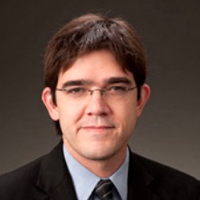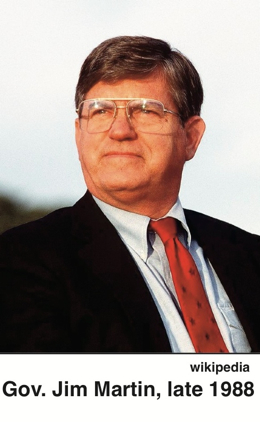Rascals case in brief
In the beginning, in 1989, more than 90 children at the Little Rascals Day Care Center in Edenton, North Carolina, accused a total of 20 adults with 429 instances of sexual abuse over a three-year period. It may have all begun with one parent’s complaint about punishment given her child.
Among the alleged perpetrators: the sheriff and mayor. But prosecutors would charge only Robin Byrum, Darlene Harris, Elizabeth “Betsy” Kelly, Robert “Bob” Kelly, Willard Scott Privott, Shelley Stone and Dawn Wilson – the Edenton 7.
Along with sodomy and beatings, allegations included a baby killed with a handgun, a child being hung upside down from a tree and being set on fire and countless other fantastic incidents involving spaceships, hot air balloons, pirate ships and trained sharks.
By the time prosecutors dropped the last charges in 1997, Little Rascals had become North Carolina’s longest and most costly criminal trial. Prosecutors kept defendants jailed in hopes at least one would turn against their supposed co-conspirators. Remarkably, none did. Another shameful record: Five defendants had to wait longer to face their accusers in court than anyone else in North Carolina history.
Between 1991 and 1997, Ofra Bikel produced three extraordinary episodes on the Little Rascals case for the PBS series “Frontline.” Although “Innocence Lost” did not deter prosecutors, it exposed their tactics and fostered nationwide skepticism and dismay.
With each passing year, the absurdity of the Little Rascals charges has become more obvious. But no admission of error has ever come from prosecutors, police, interviewers or parents. This site is devoted to the issues raised by this case.
On Facebook
Click for earlier Facebook posts archived on this site
Click to go to
Today’s random selection from the Little Rascals Day Care archives….
Click for earlier Facebook posts archived on this site
Click to go to
Today’s random selection from the Little Rascals Day Care archives….
This time, will NC Bar tell DAs to play fair?

cheshireparker.com
Brad Bannon
April 20, 2016
“‘If prosecutors have an ethical duty to avoid wrongful convictions, then they should have some sort of ethical duty to remedy wrongful convictions,’ said attorney Brad Bannon of the North Carolina Bar’s ethics committee.
“He wants North Carolina to adopt a rule recommended by the American Bar Association, requiring prosecutors to come forward if they find ‘new, credible and material evidence’ that an innocent person is serving time. Thirteen states have adopted the post-conviction rule. North Carolina isn’t among them.
“The State Bar rejected the rule several years ago but recently appointed a committee to reconsider….”
– From “Rule targets prosecutors who don’t reveal innocence evidence” by Martha Waggoner of the Associated Press (April 16)
Given prosecutors’ disproportionate influence on the state bar, to even “reconsider” the disclosure rule suggests the recent stream of unbecoming publicity hasn’t gone unnoticed.
![]()
Prosecutors’ motto: But they’re still guilty!
Jan. 20, 2012
Although the West Memphis Three weren’t day care workers, their notorious case – most recently updated in HBO’s “Paradise Lost 3: Purgatory” – holds obvious parallels to that of the Edenton 7.
In both courtrooms voodoo justice ruled.
Most poignant to me, however, is that prosecutors in Arkansas and North Carolina shared a dedication to ensuring the defendants’ long-overdue release bore the least possible resemblance to exoneration.
In August 2011 the West Memphis Three were required to enter an Alford plea, maintaining their innocence but acknowledging that sufficient evidence existed to convict them.
On May 23, 1997, Nancy Lamb announced the decision not to challenge the overturned convictions of Bob Kelly and Dawn Wilson in order to “allow wounds to heal…. The paramount thing is not having to drag these children through this again.” Her timing seemed aimed – futilely, as it turned out – at averting the national outrage that would come four days later with the airing of the final episode of “Innocence Lost.”
Two years later, when the last charges against Kelly were dismissed, here’s how Joseph Neff of the News & Observer described the scene:
“The prosecutors in the longest, most expensive criminal case in North Carolina history picked a day when all attention was focused elsewhere to quietly throw in the towel.
“It was Sept. 15, as Hurricane Floyd churned northward toward landfall the next day, that Assistant District Attorney Nancy Lamb filed a two-page document with the Clerk of Superior Court in Edenton, dismissing eight counts of sexual abuse against Robert Kelly.”
Children abused, but not by Edenton Seven
May 2 , 2012
, 2012
“Ironically, the children are indeed being sexually and emotionally abused by the therapists, officials and medical personnel who are supposed to be protecting them, and they often develop long-term symptoms as a result, including anxiety, insecurity, insomnia, nightmares, fear of strangers, depression, rages, obsession with death and suicidal impulses.
“These, of course, are then taken as proof that the original suspected abuse did, indeed, take place.”
– From “Victims of Memory: Sex Abuse Accusations and
Shattered Lives” by Mark Pendergrast (1996)
Alarmed ‘Frontline’ viewers turned to governor
 July 10, 2014
July 10, 2014
“Thank you for your letter expressing your concerns about the prosecution of the Little Rascals Day Care Center personnel in Chowan County. Although this matter is outside my jurisdiction as head of the executive branch, I appreciate your interest in the administration of justice in North Carolina….
“I would suggest that it might be appropriate to wait until after the trial when all the evidence has been heard before reaching conclusions about the correctness of actions taken by (District Attorney H.P. Williams) and the court.
“North Carolina has had a long history of evenhandedness in the administration of justice, and I am confident that the tradition continues to be in effect. Nonetheless, if you wish to express your concerns directly to the District Attorney, his address is…..”
– From Gov. Jim Martin’s response to PBS viewers appalled by the first installment of “Innocence Lost” (May 7, 1991)
Last week I found in the State Archives in Raleigh about a dozen letters beseeching Gov. Martin to look into the case. Although significantly less heated than those addressing the mayor of Edenton, the letters expressed alarm about the plight of the Edenton Seven:
“As a member of Amnesty International, I write letters to officials of foreign governments, many of them without democratic governments or traditions, urging them to look into the cases of people being unjustly treated…. (In Edenton) one fact cannot be ignored: Defendants have been held in jail without a trial for close to two years….”
– Laura J. Reid, New York City
“I was disturbed by the incredibly high bonds recommended by the District Attorney and allowed by the Judge…. I would hope that you will personally intervene to request judicial review of the bonds set….”
– Steven J. Edwards, Decatur, Ga.
“As a former teacher, I can assure you that children – especially young children – can easily be coaxed, cajoled or pressured into say just about anything an adult might wish them to say.”
– S.T. Reynolds, Woodland, Calif.
I have asked Gov. Martin, now retired and living at Lake Norman, to discuss his views of the Little Rascals case both then and now. I’ll be posting his response soon.











0 CommentsComment on Facebook